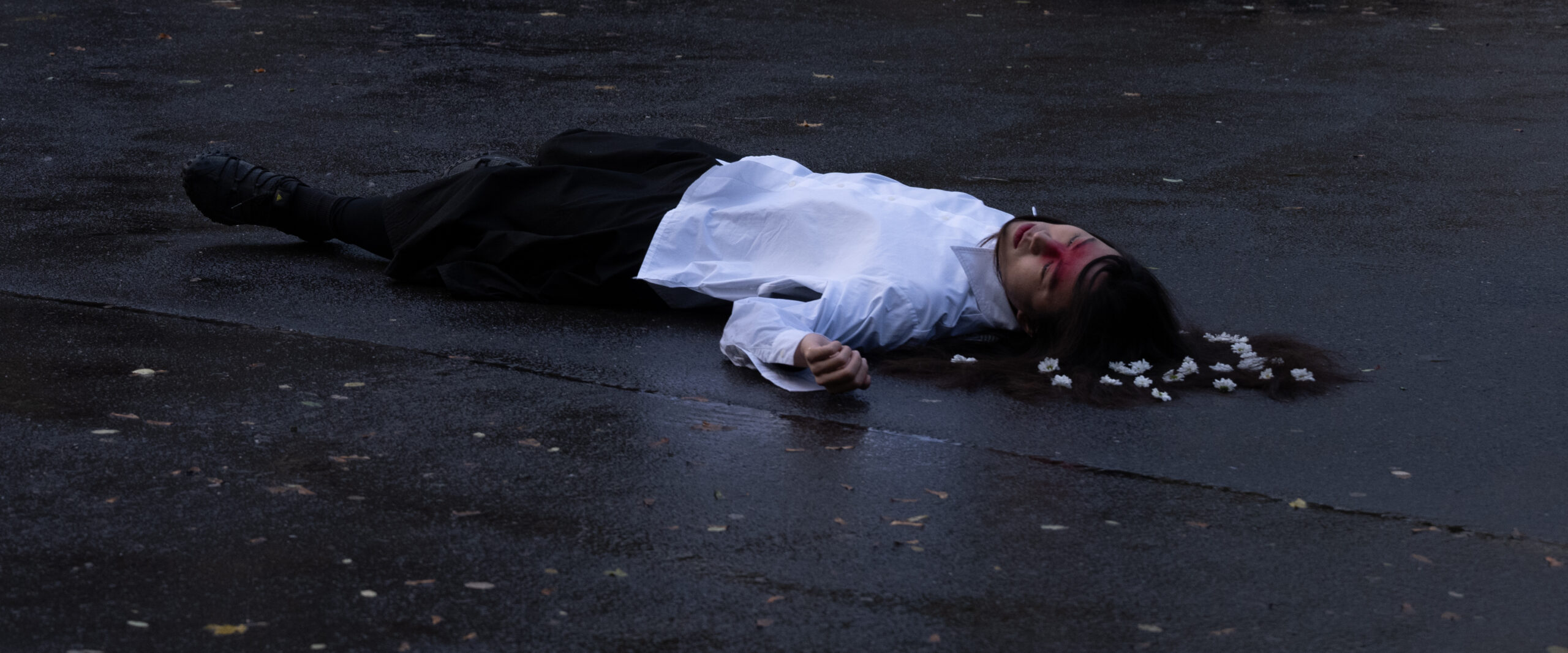As part of Subtext’s 20th anniversary, the label presents its debut album from bela as a co-release with Unsound. The first single – „The Sage“ – is available from today.
✤ (If you want to read our interview with bela, check out our previous article here)
bela was based in Seoul when they began to develop the framework for Noise and Cries (굉음과 울음). Chewed up by a society that’s slow to embrace those who exist on the margins, they and their close friends became fixated on the concept of death. „I wanted to cry, I wanted to die,“ they recall. „The precariousness of living in South Korea hits differently. I thought, let’s share what is killing us.“ bela refused to lose hope, so they inventoried the sounds, experiences and emotions that had formulated their identity and wondered how this might form a different sort of South Korean musical expression. They considered the guttural death metal growls and industrial music they heard when they began to interface with Western culture as a teenager, the idiosyncratic folk rhythms that rattled away in the background of state events, the evocative, euphoric drones that had offered them solace, and the heady, cybernetic maximalism that’s come to define contemporary queer club music.
If this was going to be an album about death, bela knew couldn’t it be preoccupied with loss, but rooted in a deep desire to regain the will to live.
Swine Guest Mix: bela
With a new album coming up, we asked bela if they wanted to make a guest mix for us, showcasing their favourite music and inspiration behind the album. Bela is a part of a SHAPE+ platform of artists.
bela about the mix: „This mix was created to support my new album, Noise and Cries (Subtext & Unsound, to be released on 12th April). It comprises tracks from other musicians that reflect what Noise and Cries is all about, to give more context to my creation. The amateurism, the DIY ethos, the grit, and the sentimentality in South Korean underground music and progressive counterculture gave a backbone to the music I am performing now. Before continuing, please take a moment to listen to the mix itself. You may notice feelings of frustration, quick-tempered anger, pressurized sounds, and an intentional lack of finesse. After listening, I encourage you to read the titles of the tracks and consider where they might take you. From where I stood, everyone around me was borderline suicidal, and I hoped my friends would live. People with toxic families, beaten down by the ruthless society, surviving day-to-day, without much sense of belonging or community, stifled by the lack of resources available to them. This is my love song to the only part of South Korea that I love. I will always pray for my friends. To them this mix might not be anything new, but to you, may be something new to look at. This piece features primarily South Korean music, with the exception of Dogr.“

bela / Foto by © Camille Blake
About the album
Noise and Cries (굉음과 울음) is the first time bela has recorded their voice, and they metamorphose it from moment to moment, embracing a precarious vulnerability. Opener ‚The Sage‘ references Jungtaryeong, two well-known arias from the Korean pansori tradition – a folk form that is usually performed by a drummer and a singer. Screaming, whispering and rasping, bela twists borrowed words from the original arias, repurposing them to highlight the hypocrisy and brutality of patriarchal wisdom.
These bellowed phrases contrast with an abrasive rhythm that bela based on the eotmori jangdan, an irregular, traditional beat that’s been remolded into a jerky, electro-acoustic call to action. Even if the gargled Korean wordplay can’t be fully understood, the mood translates flawlessly. On ‚Deathwill I‘, they reassemble the damaged relationship between a queer child and their parents with random, ghostly calls that shift between our world and the afterlife, while on ‚풀이‘ (puri, meaning unwinding), they reach to the clouds, cooing angelically and untangling the painful knots that bind them to the earthly plain’s suffering.
The shadow of their new home Berlin can be perceived clearly on ‚나락‘ (narak, meaning pit), when bela croaks over a pounding, Berghain-ready thud. Surprisingly, they wrote the track when they were still in Seoul; it was the first they prepped for the album, and they see it as a riot song that confronts the deceptiveness of Korean society. The languidly peaceful, classist capitalism we visualize on the surface is more threatening than it might seem, and bela draws parallels with monied club tourists in Europe, lost in hedonism and ignoring the turmoil that surrounds them. They split their pneumatic beat with elements of hwimori and dongsalpuri, two more traditional rhythms, and use these elements to anchor words that deconstruct the reality of the narak – the infinite abyss in the Buddhist worldview. To bela, this place or state of despair is too familiar, so they scream at the void, highlighting the unrealistic expectations placed on young, working-class Koreans in the face of widespread societal conservatism.
By weaving together such divergent elements, the album offers a remarkably complex picture of not just death, but rebirth. Noise and Cries (굉음과 울음) is an unflinching examination of South Korea’s cultural evolution, and despite its concept, it’s overwhelmingly positive. bela fantasizes about what life could offer for a queer Korean, and how the country’s traditions might provide tools for insight and self-discovery when wrestled away from reactionary gatekeepers. They operate between binaries, alloying high and low culture, ancient and contemporary ideas, loud and quiet, harmony and dissonance, leaving just as many questions as answers. „Ego melts away,“ they assure. „It’s not me – we“.
▼
⦿ Pre-order Noise and Cries 굉음과 울음 on Bandcamp. You can follow more of bela’s work on SoundCloud or Instagram ⦿


Pridaj komentár